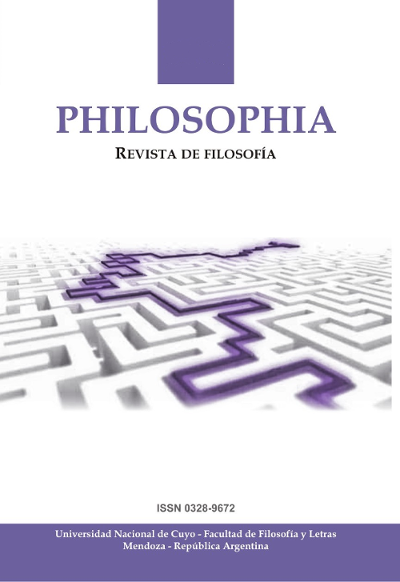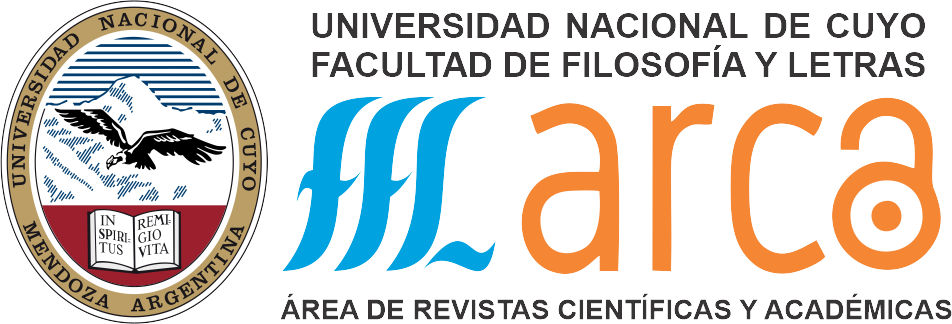Rehabilitating Subjectivity in the Interdisciplinary Dialogue.
The Aldous Huxley's Solution to the Problem of The Two Cultures
Keywords:
subjectivity, interdisciplinary method, aesthetics, Aldous HuxleyAbstract
In this paper, I analyze the thesis formulated by Aldous Huxley on the importance of including the artist to overcome the phenomenon of the two cultures –the divorce between the sciences and the humanities. I explain, first of all, why such phenomenon is, for Huxley, an expression of a highly technified and consumerist mass society. Secondly, I develop his most concrete thesis about how the abandonment of the subjective/affective dimension of knowledge is the main cause of separation between the two cultures. The last part of the paper is aimed at contextualizing and defending his proposal about the need to re-passion intellectual activity, a task in which artists –the third culture– play an important role.
References
Apostel, Leo et al. Interdisciplinariedad. Problemas de la enseñanza y de la investigación en las universidades. México: ANUIES, 1979.
Aquino, Tomás. Comentario a los doce libros de la metafísica de Aristóteles. Madrid: BAC, 1979.
Aquino, Tomás. Quaestiones Disputatae De Veritate. Roma: Turín, 1964.
Aquino, Tomás. Suma Teológica. Madrid: BAC, 1989.
Beauchamp, Tom y Childress, James. Principles of Biomedical Ethics. New York: Oxford University Press, 2002.
Cooper, Cary et al. "Occupational sources of stress: a review of the literature relating to coronary heart disease and mental ill health", Journal of Occupational Psychology 49 (1975), 11-28.
Cortázar, Julio. Rayuela. México: Fondo de Cultura Económica, 1996.
Descartes, René. Discurso del método. Madrid: Austral-Espasa Calpe, 2010.
Dethlefsen, Thorwald y Dahlke, Rüdiger. La Enfermedad Como Camino. Buenos Aires: Debolsillo. 2009.
Diéguez, Antonio. "¿Hubo siempre dos culturas?" Contrastes: revista internacional de filosofía 5 (2000), 45-62.
Gillespie, Nicole et al. "Occupational stress in universities: Staff perceptions of the causes, consequences and moderators of stress", Work & Stress: An International Journal of Work, Health & Organizations 15 (2001), 53-72.
Gmelch, Walter et al. "Sources of stress in academe: A national perspective", Research in Higher Education 20 (1984), 477-490.
Grondin, Jean. "Sobre el sentido de la inteligencia en Grecia" En El sentido de la filosofía, ed. Manuel Oriol. Madrid, Marova, 2012.
Huxley, Aldous. "Prefacio". En La libertad primera y última, de Jiddu Krishnamurti. Barcelona: EDHASA, 1989.
Huxley, Aldous. "The rest is silence." En Music at Night and other Essays, de Aldous Huxley. New York: Doubleday, Doran and Co, 1931.
Huxley, Aldous. "The Vulgarity of Little Nell." En The Dickens Critics, ed. George Ford. New York: Ithaca, 1966.
Huxley, Aldous. Adonis and the alphabet: and other essays. London, Chatto & Windus, 1956.
Huxley, Aldous. Ape and Essence. London: Vintage, 2005.
Huxley, Aldous. Complete Essays, Volume IV. Chicago, Baker & Sexton, 2002.
Huxley, Aldous. El fin y los medios. México, Editorial Hermes, 1960.
Huxley, Aldous. Island. London, Random House, 2009.
Huxley, Aldous. La filosofía perenne. Barcelona: EDHASA, 1977.
Huxley, Aldous. Literatura y ciencia. Barcelona: EDHASA, 1963.
Huxley, Aldous. The Human Situation. London: Harper and Row, 1977.
Huxley, Aldous. Un mundo feliz. Madrid: Cátedra, 2013.
Innerarity, Daniel. "El dominio público. Un decálogo para la renovación de la política." Perseo 4 (2013).
Kenny, Anthony. La metafísica de la mente. Barcelona, Paidós, 2000.
Kenny, Anthony. The god of the philosophers. Oxford, Clarendon Press, 1979.
Kingsley, Peter. En los oscuros lugares del saber. Gerona: Atalanta, 2014.
Kuhn, Thomas. "The Essential Tension: Tradition and Innovation in Scientific Research." En The Essential Tension. Selected Studies in Scientific Tradition and Change, ed. Thomas Kuhn. Chicago: The University of Chicago Press, 1977, 225-239.
Kuhn, Thomas. La estructura de las revoluciones científicas, México: Fondo de cultura económica, 2004.
Laín-Entralgo, Pedro. Antropología Médica. Barcelona, Salvat, 1985, XXVIII.
Lobo, Antonio, "La novela como pasión." Entrevista concedida al periódico El País el sábado 20 de marzo de 2004.
Muñoz Molina, Antonio. "La disciplina de la imaginación". Publicado en El País, el sábado 29 de septiembre de 1998.
Newman, Henry. Los deberes de la Iglesia hacia el saber. Pamplona, EUNSA, 1996.
Nietzsche, Friedrich. El crepúsculo de los ídolos. Madrid: Alianza, 2004.
Padilla, José Antonio. Universidad: Génesis y Evolución, Tomo IV. México: Ediciones Universidad Autónoma de San Luis Potosí, 1998.
Pedroza, René. "La interdisciplinariedad en la universidad." Tiempo de educar 13 (2006), 69-98.
Platón. Diálogos VIII, Las leyes. Madrid, Gredos, 1999) Libro VII.
Plutarco, Vidas Paralelas, Tomo.2, XVII. Madrid: Imprenta Nacional, 1821.
Vásquez, Adolfo. "Wittgenstein; Mística, Filosofía y Silencio." Revista Almiar 85 (2005).
Wittgenstein, Ludwig y Bouwsma, Oets Kolk. Últimas conversaciones con Wittgenstein. Salamanca: Sígueme, 2004.
Published
How to Cite
Issue
Section
License
Se permite la reproducción de los artículos siempre y cuando se cite la fuente. This work is protected under license Attribution-NonCommercial-ShareAlike 3.0 Unported (CC BY-NC-SA 3.0) You are free to: Share "” copy and redistribute the material in any medium or format; Adapt "” remix, transform, and build upon the material
The licensor cannot revoke these freedoms as long as you follow the license terms.
Under the following terms:
Attribution "” You must give appropriate credit, provide a link to the license, and indicate if changes were made. You may do so in any reasonable manner, but not in any way that suggests the licensor endorses you or your use.
NonCommercial "” You may not use the material for commercial purposes.
ShareAlike "” If you remix, transform, or build upon the material, you must distribute your contributions under the same license as the original.
No additional restrictions "” You may not apply legal terms or technological measures that legally restrict others from doing anything the license permits.
For more information, please visit: https://creativecommons.org/licenses/by-nc-sa/3.0/deed.en















